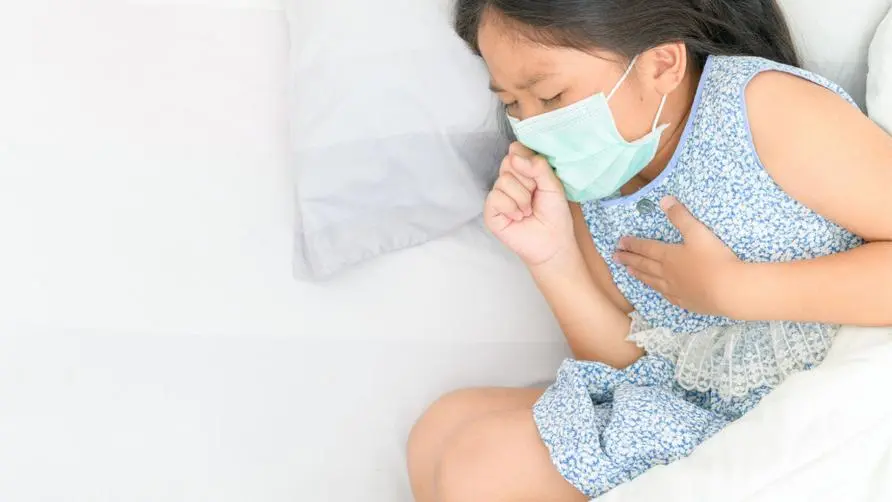Does raining every day in winter not only affect your mood? Intensivists expose 4 major hazards: The heavier the rain, the higher the risk

Does raining every day in winter not only affect your mood? Germ transmission rates are higher than on sunny days
The northern half of Taiwan is often rainy in winter, and “winter rain” not only affects your mood, but may also impair your physical health? Dr. Huang Xuan, an expert in critical care medicine, pointed out in the community that winter rains may also provide a breeding ground for viruses and bacteria, leading to an increased risk of respiratory bacterial infections. The literature published in the “Virology Journal” investigated the relationship between influenza viruses and rainfall in 12 states in the United States from 2009 to 2013. The study found that there is a significant correlation between increased rainfall and increased influenza virus activity.
A study published in “Emerging Infectious Diseases” also found a positive correlation between increased rainfall and an increase in dengue fever cases. These findings reveal that rainfall may promote the spread of respiratory viruses by increasing the number of mosquitoes, which are the vectors for many respiratory viruses; and by increasing the number of viruses caused by winter rains that cause people to stay indoors for long periods of time. The chance of spreading among the population. Finally, there is more moisture in the air, which helps the virus survive longer and spread more easily.
In general, Dr. Huang Xuan reminds people that people need to pay special attention to the occurrence of the following diseases when it rains in winter:
Pneumonia: Bacterial and viral pneumonia may be more common during winter rains due to weakened immune systems and increased exposure to pathogens.
Bronchitis: Inflammation of the bronchial tubes is common in wet, cold weather, especially in people with respiratory problems.
Flu: Flu season typically peaks in the winter, and rainy weather can further amplify its spread.
Are you afraid of “something wrong with you” due to the continuous winter rain? Critical care doctors expose 4 hazards: The heavier the rain, the higher the risk
In addition to the problem of respiratory bacterial infections, winter rains may also aggravate muscle and bone pain. “Rheumatology” research shows that the cold and humid weather of winter rain can aggravate joint pain and stiffness, especially for people with diseases such as rheumatoid arthritis, and their conditions are more likely to worsen. Some literature has also found that there is indeed a significant relationship between rainfall and joint pain in patients with arthritis.
The study looked at data from more than 500 people with rheumatoid arthritis in the UK, analyzing the relationship between the joint pain they experienced over a year and the amount of daily rainfall. The results of the study showed a significant positive correlation between increased rainfall and increased reports of joint pain, with greater rainfall associated with greater pain. The study also found that the correlation between joint pain and rain was more pronounced in female patients than in male patients.
Researchers speculate that the link between rain and joint pain may be related to changes in air pressure, which can affect the fluid balance in joints and cause pain. In addition, a humid environment may aggravate joint inflammation, leading to increased pain; while people tend to reduce outdoor activities on rainy days, and reduced exercise may aggravate joint stiffness and pain.
The most well-known impact of long-term exposure to bad weather is “mental health disorders.” Dr. Huang Xuan cited literature from the “Journal of Affective Disorders” to explain that gloomy skies and reduced sunshine during winter rains can contribute to seasonal affective disorder (SAD), which is characterized by more obvious depression and mood swings.
The study analyzed the data of 247 patients with seasonal affective disorder in the United States and investigated the relationship between the depressive symptoms they experienced within one year and the amount of rainfall. The results showed that the amount of rainfall was positively correlated with the severity of depressive symptoms, that is, the greater the rainfall, the worse the depressive symptoms. serious. This association was mainly in winter, whereas no association was found in summer. In addition, people with seasonal affective disorder, who are sensitive to light, are more sensitive to the effects of rain.
Researchers speculate that rain causes symptoms of seasonal affective disorder and is related to reduced light, poor air quality and seasonal changes. Insufficient light is one of the main factors in seasonal affective disorder, and reduced air quality may further aggravate symptoms of depression. Winter itself is associated with mood swings and an increased risk of depression, and rain is a more likely factor in exacerbating winter depression.
Bring more than just a raincoat, umbrella, and rain boots! “These preventive measures” must be taken when it rains in winter
Heavy rain causes slippery roads and reduced visibility, which also increases the risk of accidents and falls! “Accident Analysis & Prevention” research analysis pointed out that there is a significant correlation between increased rainfall and an increase in the incidence of pedestrian accidents, and it is more obvious during the day than at night. The reason may be because there are more pedestrians during the day and visibility has a greater impact on safety. The study also found that slippery roads and reduced visibility caused by rainfall are the main reasons for the increase in pedestrian accidents.
To sum up, Dr. Huang Xuan recommends that if you encounter wet and cold weather when going out, it is also recommended to adopt the following methods to keep warm to avoid rainy days affecting your physical, mental and mental health:
Keep Dry and Warm: In addition to raincoats, umbrellas, and rain boots, rain gear should also be properly kept warm to avoid hypothermia and chills.
Wash your hands frequently: This helps prevent the spread of germs and viruses, especially during flu season.
Boost your immune system: Eat a healthy diet rich in fruits, vegetables, and whole grains, and get enough sleep.
Emotional health: You can combat the winter blues or other low moods by engaging in activities such as exercise, getting close to nature, and connecting with loved ones.
Source: “Winter Rain, Impact on Health” - Dr. Huang Xuan
Extended reading:





